Can You Freeze Ricotta Cheese?

For one reason or another, you’ve found yourself staring at a container full of dairy goodness and wondering, "Can you freeze ricotta cheese?" Perhaps you bought a tub too large to finish in one go, or your homemade batch turns out more plentiful than expected. Now, you’re curious to know whether or not you can freeze ricotta cheese.
Whether you're a culinary newbie experimenting with new recipes or someone who loves to stock up on ingredients, understanding how to properly preserve ricotta can be a game-changer in your kitchen adventures. In this article, we answer all questions relating to ricotta cheese and the possibility of freezing it so you’re well-prepared to use it in future dishes like creamy pastas, decadent desserts or even as a simple spread on fresh bread. So, let's find out — can you freeze ricotta cheese?
Can Ricotta Cheese Be Frozen?
Finally, an answer to the age-old question (for some): Can you freeze ricotta cheese? In a previous article, we answered the question "Can you freeze cheese", and while you can freeze ricotta cheese, the answer this time is a little more complex. The high moisture content in ricotta causes ice crystals to form when frozen; in other words, when you thaw your ricotta, the texture of the cheese will have changed, which may be less appealing to some.
Ricotta is a fresh cheese that hasn't been through the aging process, which leaves this indulgent creamy cheese with a very short shelf life. While freezing ricotta is the only way to store it for an extended period, this type of cheese doesn't fare as well in the freezer as other kinds. Instead, when possible, it’s recommended that you do your best to use up your extra ricotta cheese immediately or within a few days.

Can You Freeze Unopened Ricotta Cheese?
Now that we've answered the overarching question, you might be wondering, "Can you freeze unopened ricotta cheese?" While many people tend to freeze leftovers, you can freeze ricotta cheese that is yet to be opened. It’s even simpler than freezing leftovers — just place the unopened ricotta in the freezer; it’s that easy. The original airtight packaging helps keep it fresh for longer than opened ricotta, maintaining the quality and extending the shelf life of the cheese in the freezer.
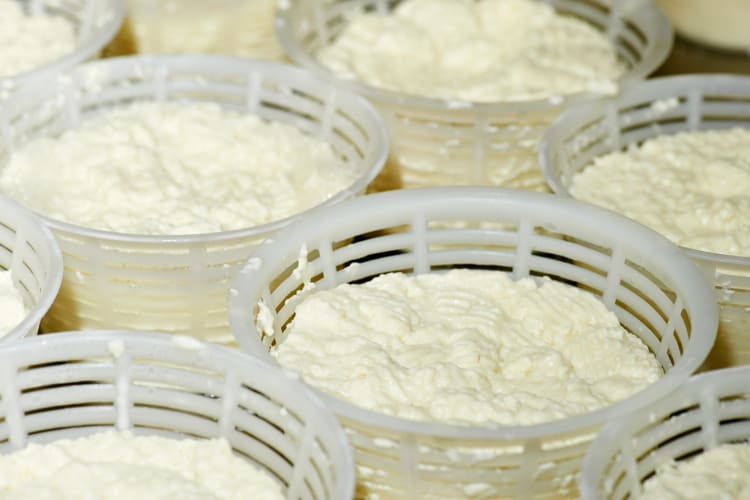
Can You Freeze Ricotta Cheese After Opening?
If you can freeze ricotta cheese that’s unopened, can you freeze ricotta cheese after opening it? You guessed it — the answer is yes, and although it’s not as straightforward as freezing unopened ricotta, it’s still quite simple. All you need to do is transfer the ricotta cheese into an airtight container or freezer bag before freezing. By following these steps, you can preserve the delicate flavor of ricotta effectively. Bear in mind that textural changes can still happen given ricotta's water content.

Can You Freeze Homemade Ricotta Cheese?
After searching through Pinterest and putting your culinary skills to the test, can you freeze ricotta cheese from your very own kitchen? You'll be happy to know that you can and your homemade creation won't go to waste, especially if you made extra helpings. Keep in mind, however, that homemade ricotta cheese typically has a shorter shelf life than store-bought ricotta. This difference is due to the added preservatives and the pasteurization process that store-bought ricotta typically undergoes, giving it the ability to freeze effectively for extended periods. Therefore, while your homemade ricotta is safe in the freezer for longer than it would be in the fridge, don’t wait too long before consuming it.
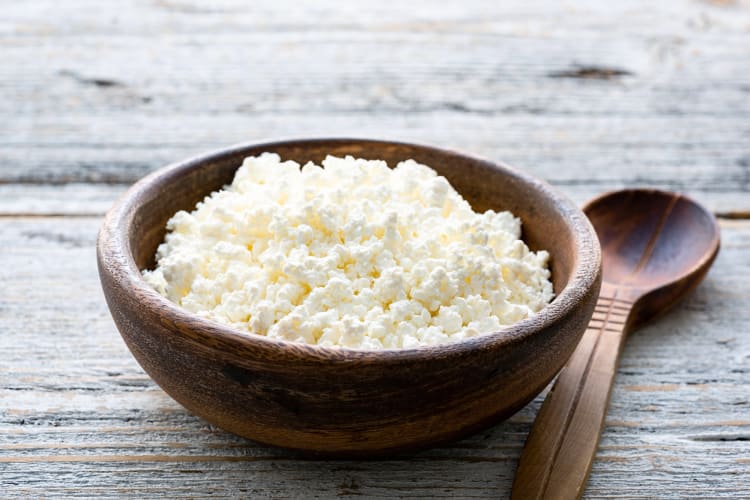
Can You Freeze Ricotta Cheese Mixture?
Yes, you can freeze ricotta cheese mixture, but it's important to consider what you plan to do with it afterward. When it comes to ricotta cheese mixtures, which often include ingredients like herbs, spices or other cheeses, you’ll find that texture change can be even more evident thanks to the additional ingredients blended into the mixture. It's important to keep this in mind before deciding to freeze your ricotta cheese mixture.
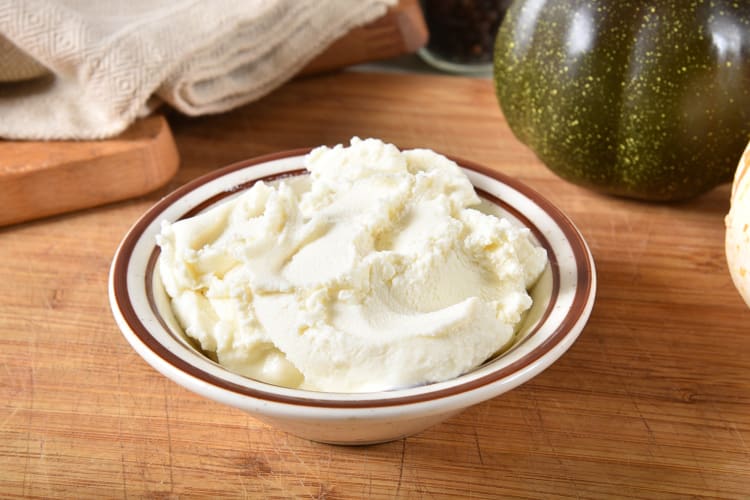
How To Freeze Ricotta Cheese
You can freeze ricotta cheese by using a selection of methods, depending on whether the cheese is opened or sealed in its original packaging. Follow the guidelines below for successful freezing:
1. If unopened, simply place the ricotta cheese container in the freezer and you’re good to go.
2. If opened, the cheese should be stirred to ensure it freezes uniformly, and any excess liquid should be poured away.
3. Divide your ricotta into smaller portions or distribute it in an ice cube tray. Unconventional, yes, but it's a more efficient method of portioning your cheese.
4. Place your ricotta in an airtight, freezer-safe container or wrap it tightly with plastic wrap before putting it inside a freezer bag.
5. Label the container or freezer bag with the "frozen" date and the type of cheese. You'll want to eat your frozen ricotta within two months of freezing, and having the date clearly labeled can help you do so.
6. Place the ricotta in the freezer.
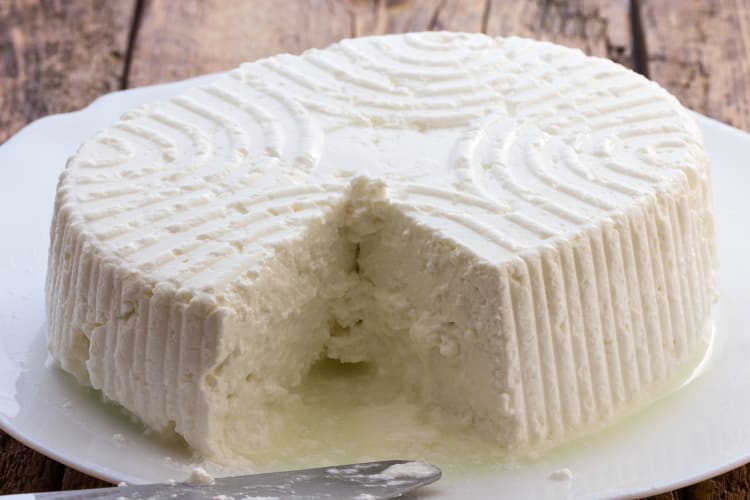
Can You Freeze a Container of Ricotta Cheese?
Yes, you can freeze ricotta cheese in its original store-bought container, even after opening it. Because ricotta tends to be sold in large quantities, but recipes typically only require a small amount, freezing the excess can help prevent waste and preserve it for future use. However, if the ricotta comes in a plastic tub, it's best to transfer it to a freezer-safe container or a ziplock bag, as the original container might not be suitable for freezing.

How Long Can You Freeze Ricotta Cheese For?
Freezing ricotta cheese can be hit or miss, but generally, you can freeze ricotta cheese safely for up to two months, sometimes even three if you’re lucky. In comparison, store-bought ricotta lasts one to two weeks when stored in the fridge, while homemade ricotta only lasts about two days.
As we've mentioned, freezing is possible but not foolproof, as frozen ricotta can still spoil. The initial sign that your ricotta might be going bad is freezer burn, which occurs when moisture evaporates from the surface of the cheese, causing the texture and taste to change drastically.
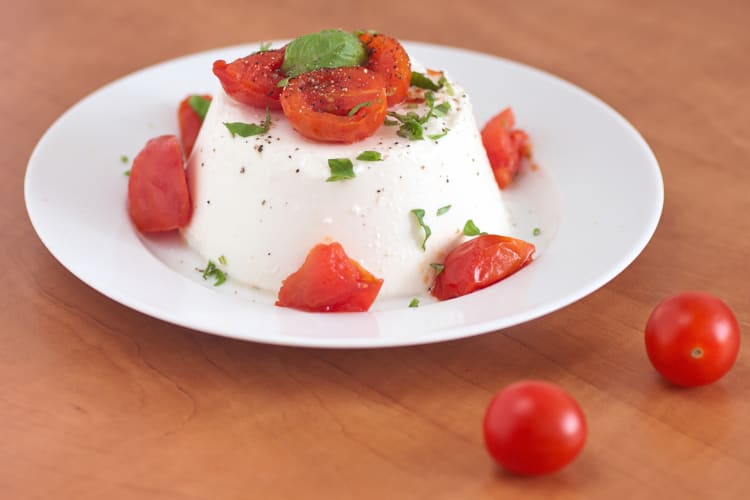
Frozen Ricotta Cheese Recipes To Try
We now know that you can freeze ricotta cheese (though we wouldn't always recommend it). What about cooking with frozen ricotta cheese? Whether incorporating ricotta into a cooked dish or using it in another way, thawing is essential — avoid adding frozen ricotta directly to cooked food. Thawed ricotta cheese works best as an ingredient in cooked dishes to disguise texture changes caused by freezing.
There are plenty of recipes for you to try your hands at with thawed ricotta. How about crafting a baked ricotta? It's perfect for serving on a charcuterie board with cured meats and olives when you have company over. Alternatively, indulge in lemon ricotta pasta — a perfect springtime dish that combines fresh, bright flavors with fun textures. It pairs beautifully with a succulent grilled chicken.
If you're looking to incorporate ricotta cheese into your meals in more ways, consider attending cooking classes near you. Or, if you prefer, you can opt for online classes from the comfort of your home. Both will be guided by renowned, experienced chefs ready and willing to share their best culinary secrets.

How To Thaw Frozen Ricotta Cheese
Now that we've discovered the answer to the question, "Can you freeze ricotta cheese?" and explored various ways to do it, we need to look at the thawing process. To properly thaw your ricotta, place it in the refrigerator and leave it for 24 to 36 hours to defrost. As an important note to prevent bacterial growth, do not defrost your ricotta at room temperature. Once softened, you’ll notice that the ricotta separates into liquid and cheese; stir it thoroughly in a bowl and use it within two days. Avoid refreezing.
While the texture can change slightly upon thawing, especially with homemade varieties with shorter shelf lives, proper storage and thawing techniques can help to maintain the quality of ricotta cheese. Whether you're freezing unopened containers to extend their freshness or portioning out leftover ricotta for future meals, understanding these methods ensures you can freeze ricotta cheese and enjoy it in its best form whenever you choose to use it.

Cooking is all about curiosity and answering questions. Hopefully, at this stage, you have enough knowledge in mind to give a well-informed answer should anyone ever ask you, "Can you freeze ricotta cheese?" While it is generally not a recommended practice, you can use the information shared to make informed decisions about preserving this versatile, if stubborn, Italian cheese for future use.
For even more ways to explore your favorite foods, check out other experiences happening on Cozymeal.
